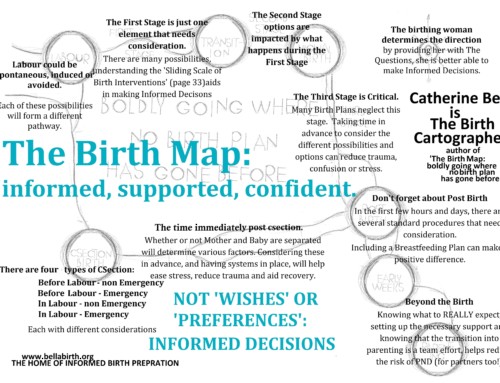The following is an email sent to Professor Elizabeth Armstrong of Princeton University after she wrote an op-ed piece for the New York Times on the use of formula in hospitals. I believe they both make wonderful points and hope more people consider all the factors that can help women and babies have the best start in life
I just finished reading your above-referenced article and it makes an excellent point about the destructive practice of distributing formula to new moms who want to breastfeed. While I agree stopping this practice, as well as joining in with every other developed nation in giving women paid and sufficient maternity leave, would be a starting point in increasing breastfeeding rates here in the US, I think there are many other issues getting in the way of breastfeeding in the US. Having breastfed two children for about seven months each, given birth in the US and in Europe, hung around maternity care activists, doulas and lactation consultants quite a bit, watched US friends who took the medical birth route in the US, and read tons on these topics, I can say we are not going to fix this issue until we also fix US maternity care generally.
Quite simply, the people who provide maternity care to women, and pediatric care to newborns, in this country typically know very little about physiological childbirth, let alone breastfeeding. Furthermore, they have very little economic or other incentive to learn more about physiological birth or infant feeding. The US is perhaps the worst developed nation for these purposes because of our overall healthcare culture.
Most women in this country have their pregnancies and labors managed by surgeons (OB/GYNs) and are made to believe they can do very little to influence their experience of pregnancy and childbirth. The majority have their labors induced with synthetic hormones, often without any evidence that this will improve their childbirth outcome or reduce risk, and 30%+ of them end up with surgical births (WHO estimates around 12% overall in a society is where we should be; this is also where several European countries with very low infant mortality rates are).
Women are routinely denied food and water in labor, forced to give birth in the supine position, separated from their babies and subjected to episiotomy. There is no evidence these practices improve maternity outcomes but they are still widely practiced here in the USA. We are the only developed nation where surgeons, rather than midwives trained in helping along physiological births and identifying risks that require surgery, are the primary caregivers for pregnant women. Ironically (or perhaps not) this has led to birth being far less safe here in the US than it is in almost every other developed country.
Women often do not have access to a lactation consultant or doula to help them initiate breastfeeding. Even when they do, this support is usually short-lived, while establishing a good milk supply typically takes up to 6 weeks of hard work on the part of mom.
This environment leads to many challenges for breastfeeding. The first one being that women are often physically or psychologically traumatized by their birth experiences, which come ridden with the non-evidence-based and abusive practices listed above. They have often had to work until the day they birthed their babies. Milk production requires a fine balance of hormones, which don’t flow as easily in the body of a woman who has been pumped full of synthetic hormones, painkillers and adrenaline, has just had major abdominal surgery, and who is exhausted from working until the bitter end of her pregnancy.
Breastfeeding is also hard work. It guarantees that you will not be able to sleep for more than 2 hours at a stretch for many, many months. It requires you to sit in one place for many hours per day. It does not come naturally to many women, myself included. Some women have an easy time of it — more power to them — but even when it is very difficult, it is possible for most women with the right amount of support and determination. But most women do not have sufficient support or the confidence that they can succeed at it through work. In other words, breastfeeding is something you have to work at on your own. Knowledgeable people can help you learn how to do it, but in the end its down to you. No one can do it for you.
Notice how US women (outside the home birth/natural birth community) almost always say “my doctor delivered me/my baby” instead of “I gave birth/birthed.” When you have been trained during your pregnancy that pregnancy and childbirth are not something you do, but instead are something that happens to you or is done to you by a third-party expert, you are not really in the mindset to undertake the very self-directed hard work needed to breastfeed.
Lastly, pediatricians in the US are very risk-adverse, to the point that MANY will respond to “insufficient” newborn weight gain by reflexively recommending supplementation with formula. Even when they don’t go this far, often they do not share with women the fact that breastfed babies gain weight much slower that formula fed babies, and that a loss of up to 20% of birthweight is normal in breastfed babies during the first week of life. I have never heard of a pediatrician sharing techniques for increasing milk supply with a woman (although some, to their credit, do refer women to lactation consultants).
I have heard several of my US women friends share the story that they “didn’t have enough milk” so they needed to use formula. Having had a similar “problem” in a different culture, I know that there are more scientific ways to deal with slow baby weight gain than immediately supplementing. Not that supplementing is always unnecessary, but the fact is that it is often not necessary. There are many low-tech ways a woman can increase her milk supply, determine exactly how much baby is getting, and judge if baby is healthy despite slow weight gain. Unfortunately, all these techniques take a trained person (usually a midwife or lactation consultant) spending time with the woman and both women using their brains to thoughtfully determine what is causing the slow weight gain and whether it signals a dangerous situation or not. Then, that trained person tells the woman how to help herself. The women then needs to exert effort to achieve the desired aim.
The fact is, this is not the way medical care is delivered in the US — its all about prescribing something external (here, formula) within a short window of time and sending the person in need of care away. This is just not a system that will ever help women– other than those to whom breastfeeding comes naturally — achieve sucessful breastfeeing.
I hope that people like yourself will continue to use your public forum to discuss these issues, which are of so much importance to women’s lives.
Anonymous
.







Leave A Comment